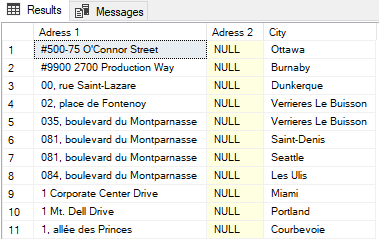In this article, we are going to learn some best practices that help to write more efficient SQL queries.
Introduction
Queries are used to communicate with the databases and perform the database operations. Such as, we use the queries to update data on a database or retrieve data from the database. Because of these functions of queries, they are used extensively by people who also interact with databases. In addition to performing accurate database operations, a query also needs to be performance, fast and readable. At least knowing some practices when we write a query will help fulfill these criteria and improve the writing of more efficient queries.
Read more »


